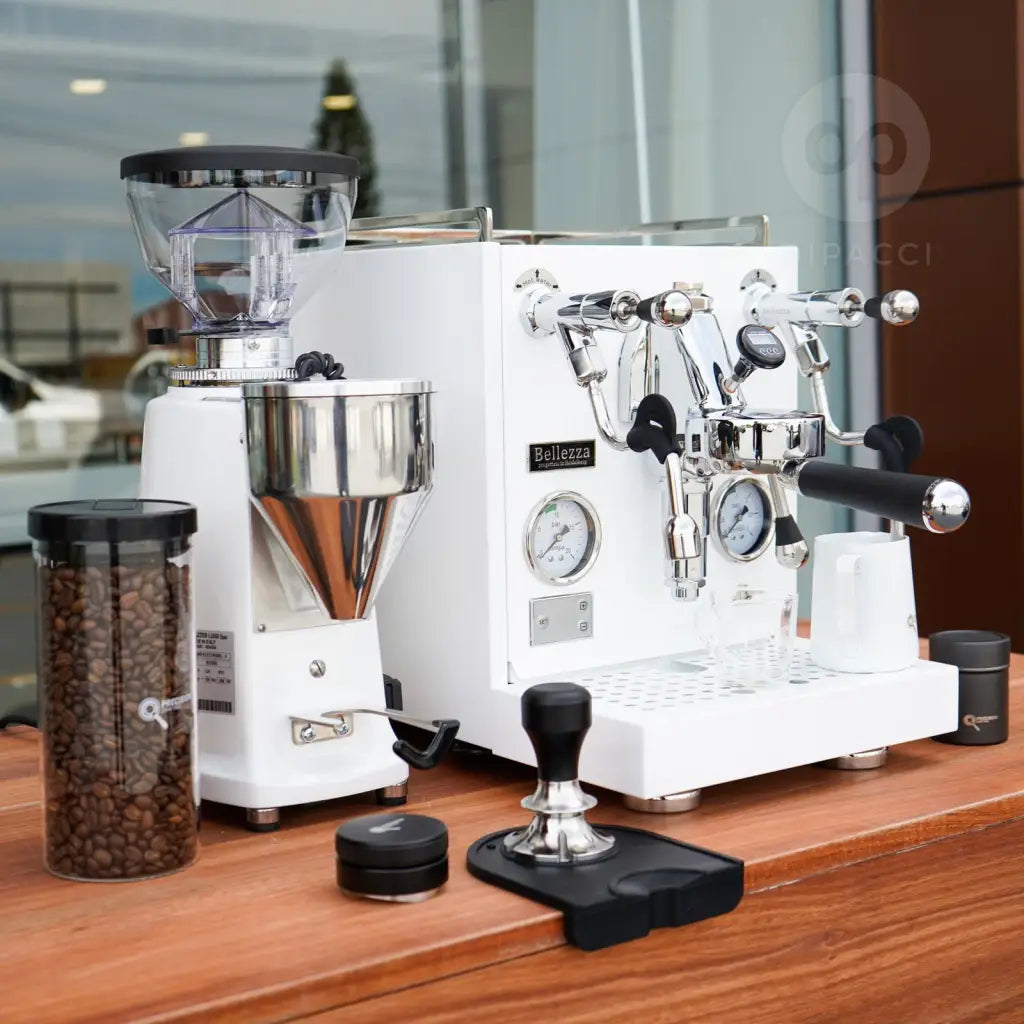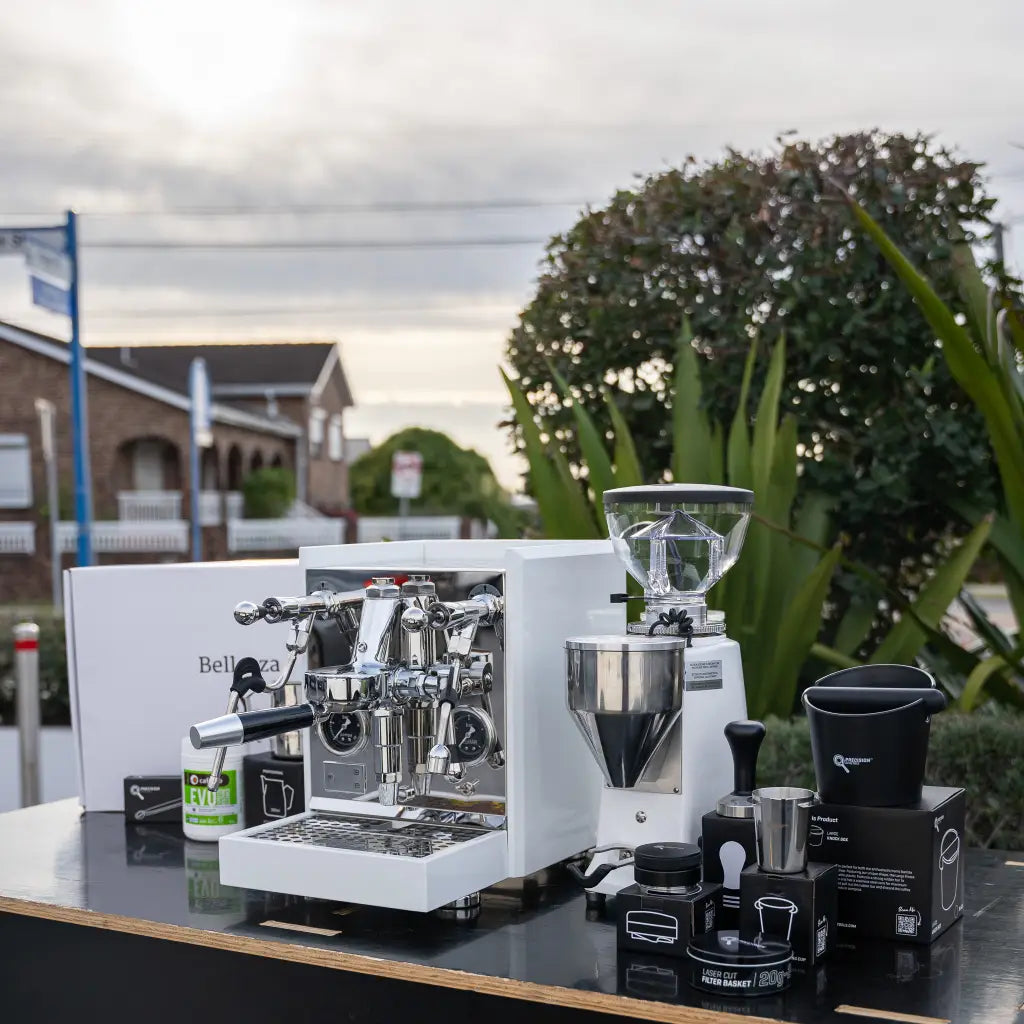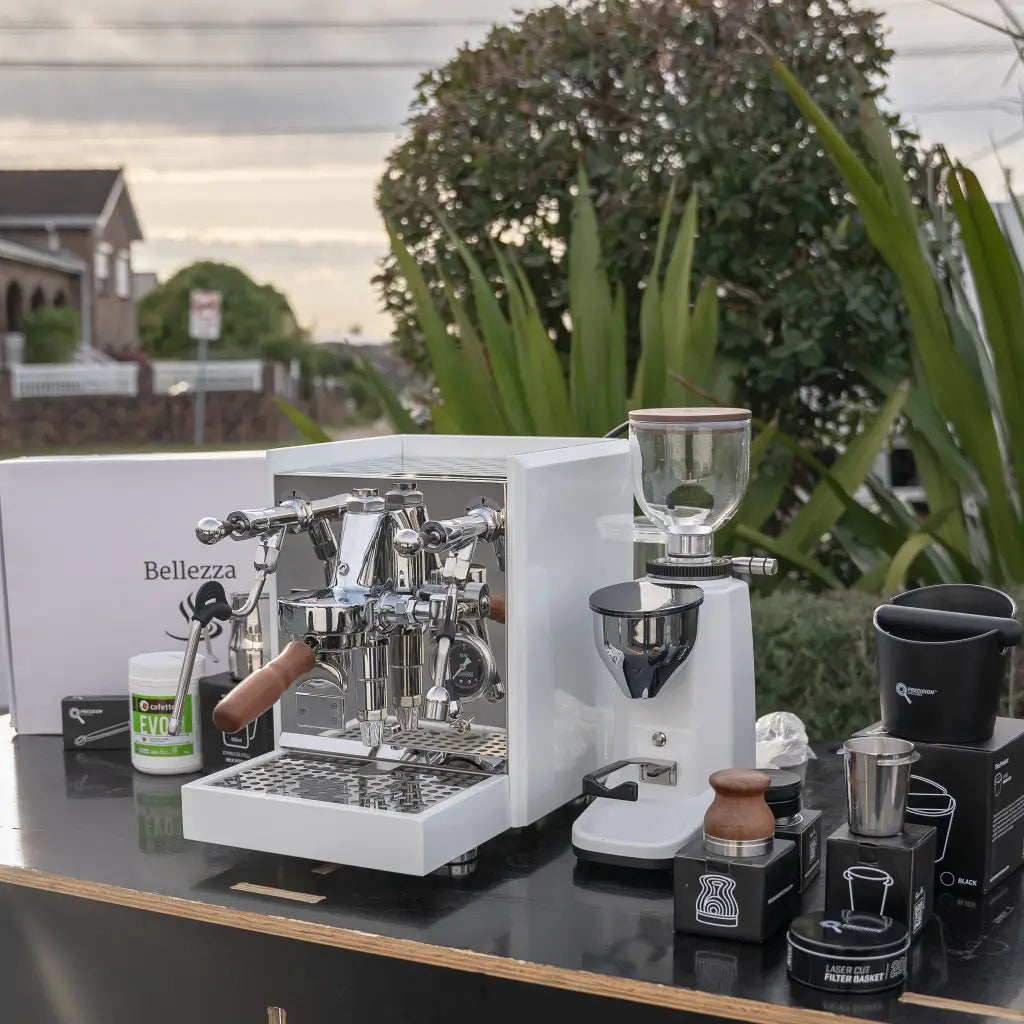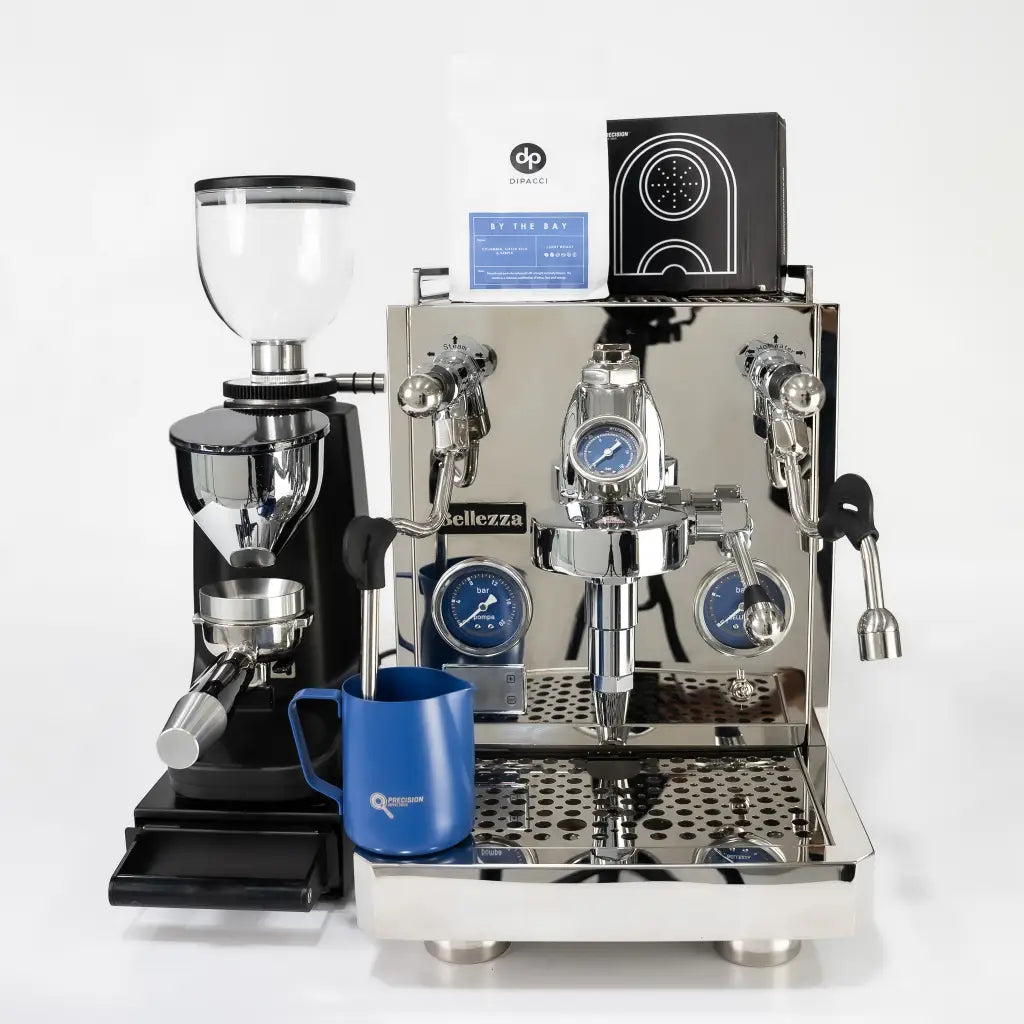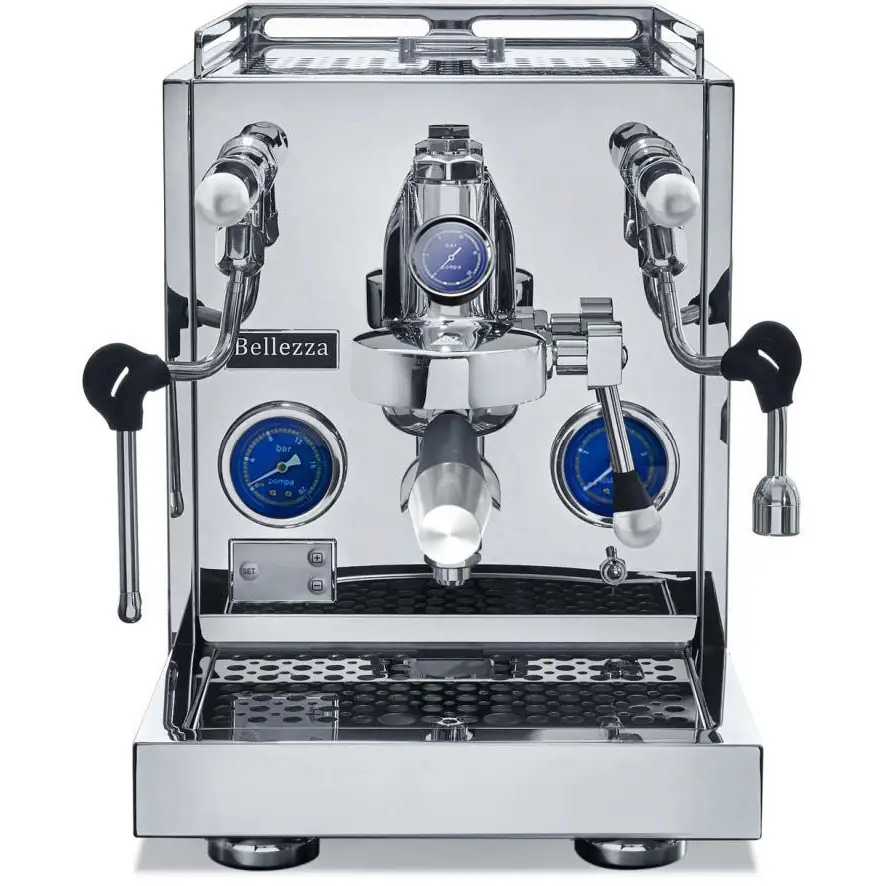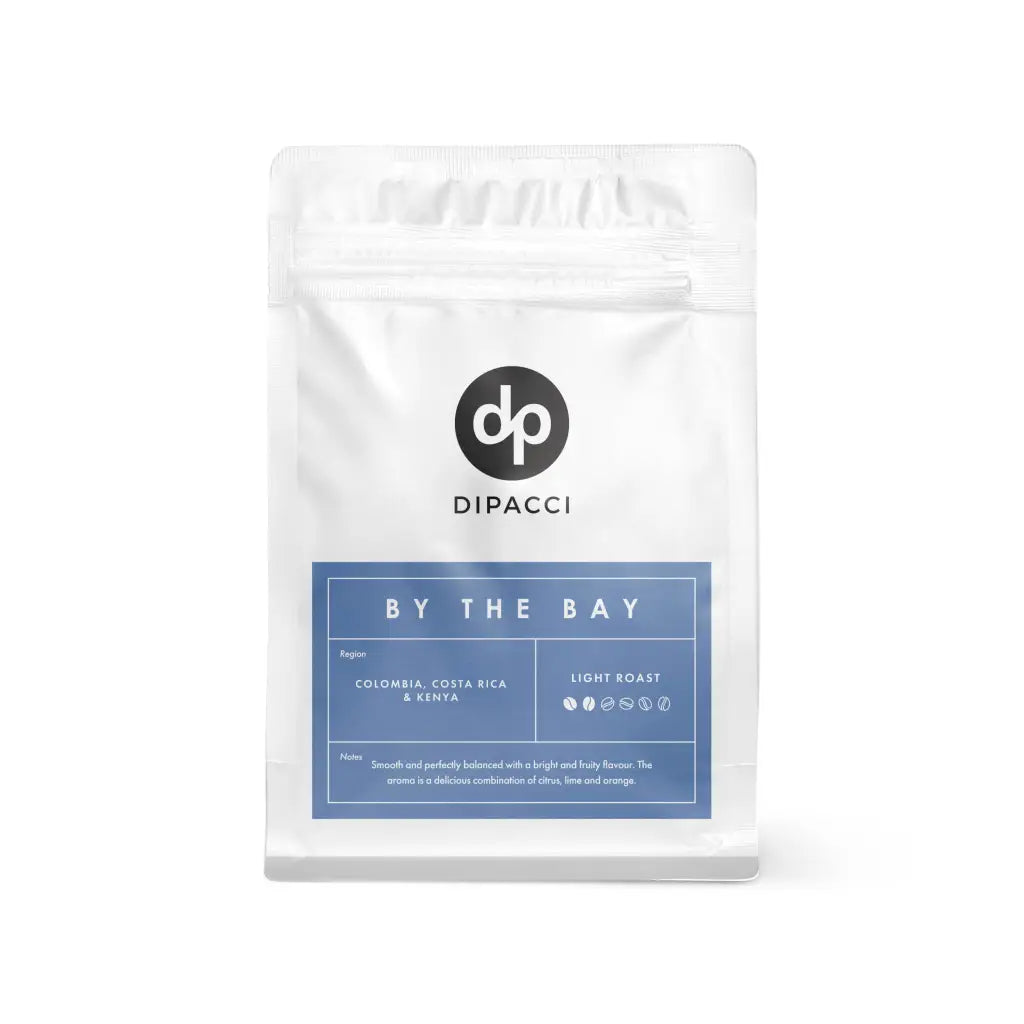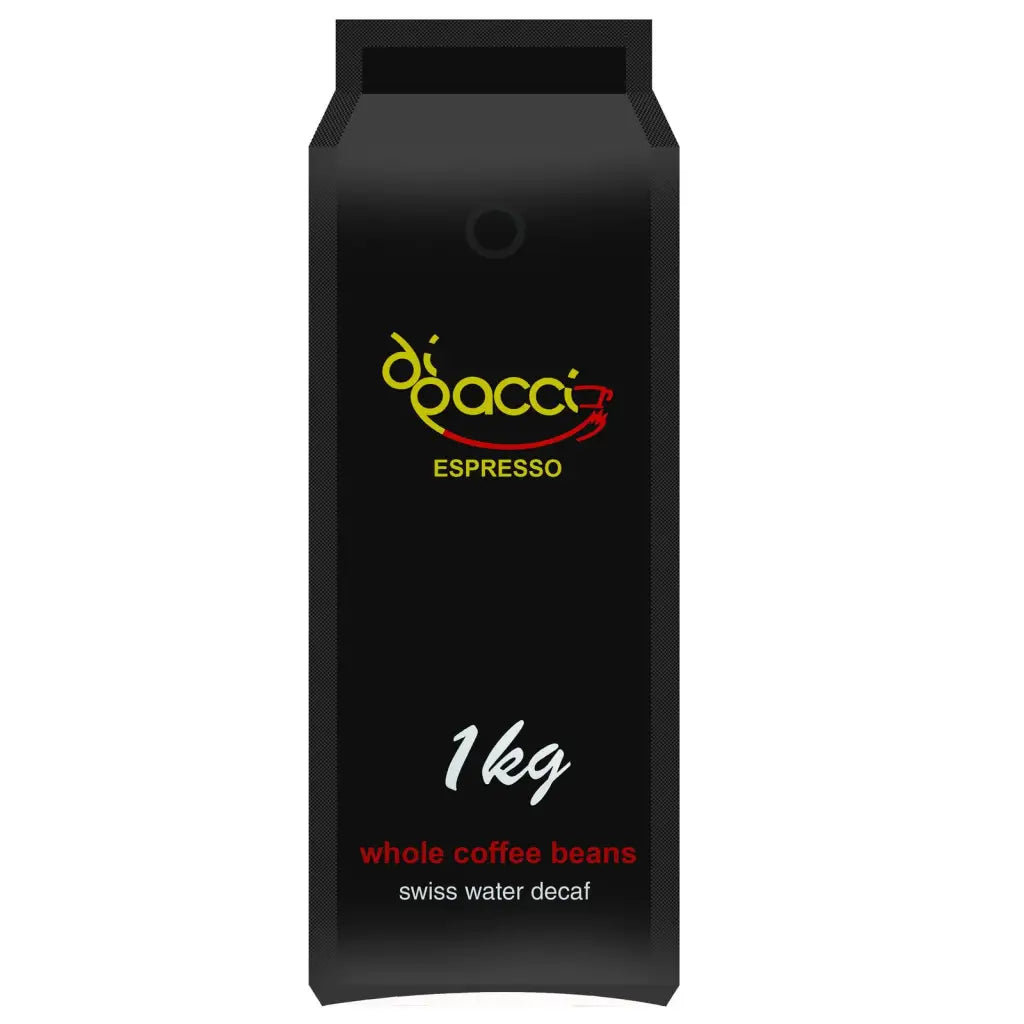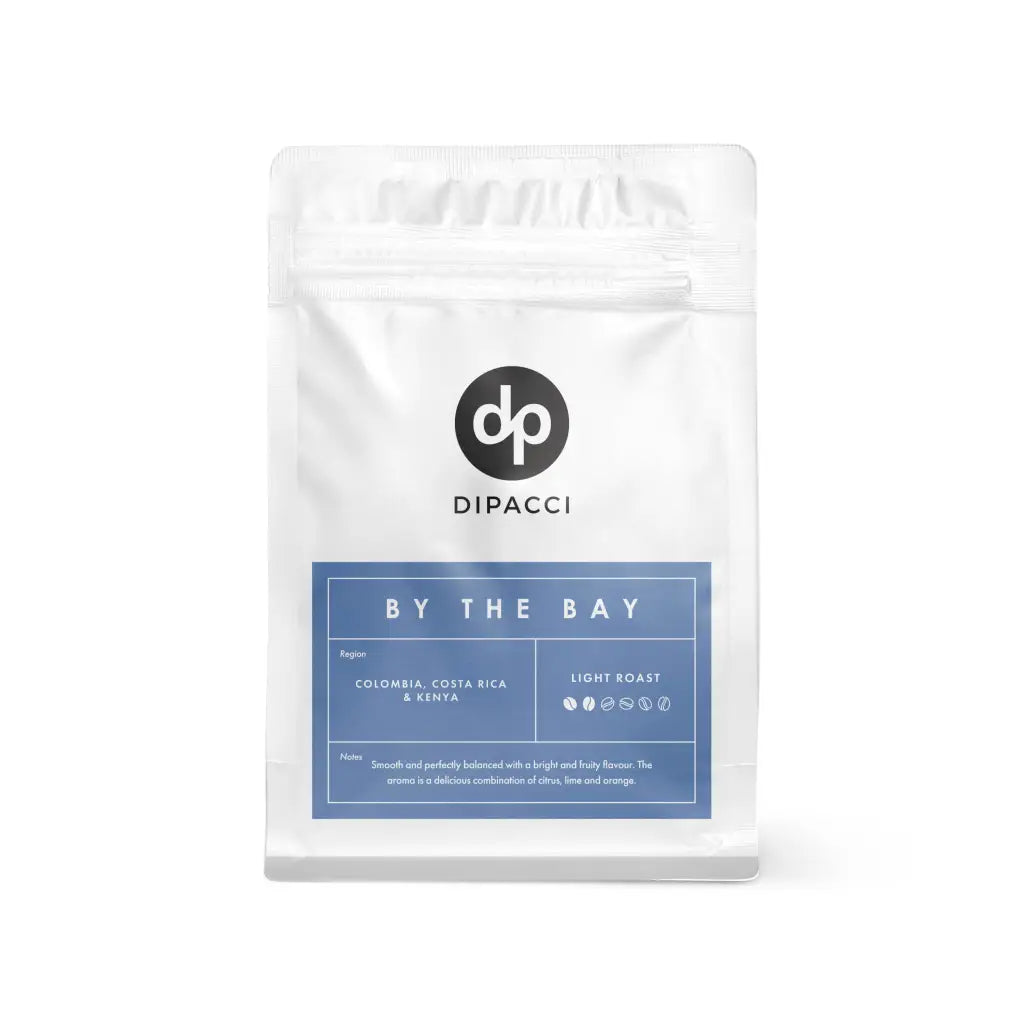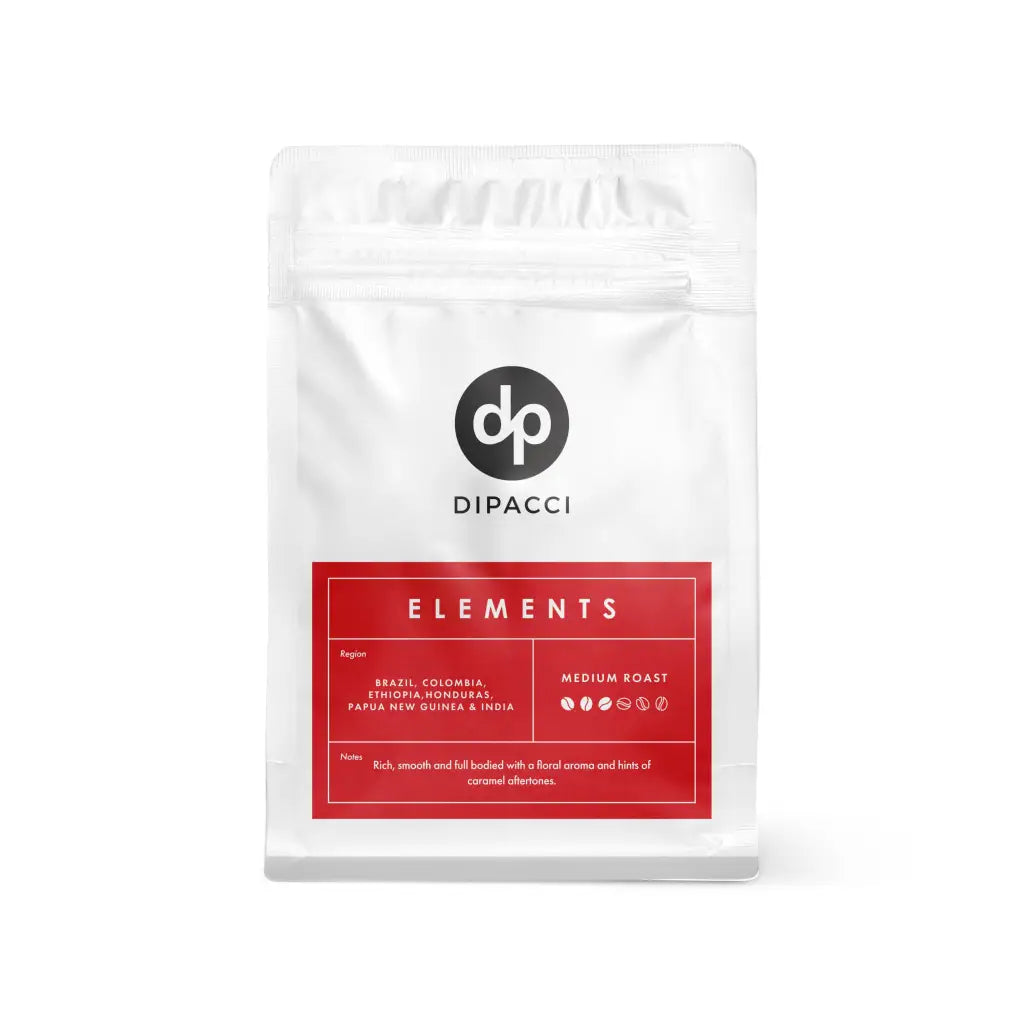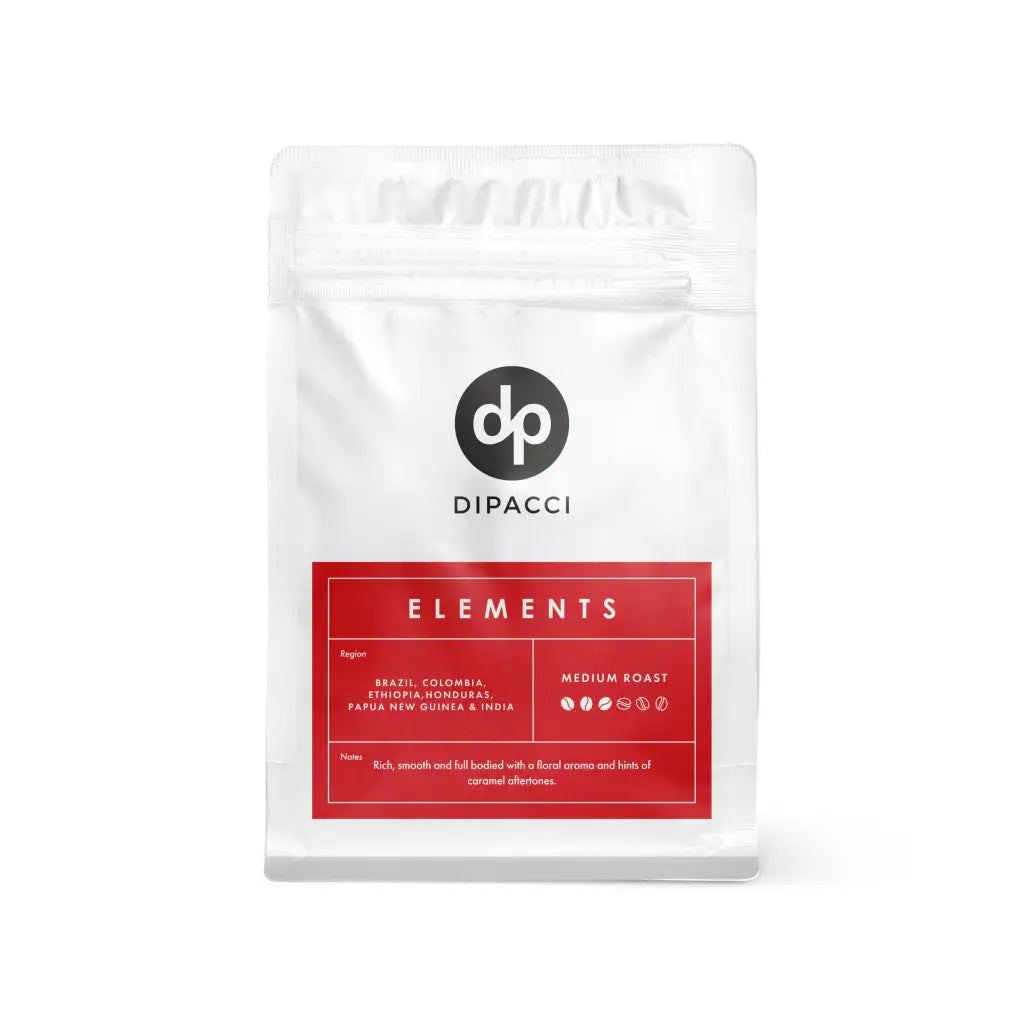- HOME
-
SHOP ALL - SALE
-
FREE SHIPPING DEALS
-
COFFEE BEANS
-
RECENTLY VIEWED
You have no recently viewed items.
- REVIEWS
- CONTACT US
Description
The Titus Grinding EK43 is a volumetric dosing tool
The operation of the Titus volumetric dosing unit involves the placement of spacer rings that have been meticulously milled inside of a cylinder. This creates a fixed volume that can be easily moved back and forth between the aperture of an EK43 grinder and the bottom of a hopper or funnel.
A funnel ring made of stainless steel is included with the current series of units, and a top plate made of stainless steel is considered an optional accessory for the slider bar. The coffee can leave a stain on the slider bar after it has been used for some time.
The Titus volumetric dosing unit has been shown to be more accurate than the variance of normal grinding with the EK43, according to the findings of the testing investigation. We tested the accuracy with a full hopper, and it was found to be within +/- 2 coffee beans, which is around +/- 0.2 grammes. The evenness of the screen size of the beans provides the basis for determining the number and weight of the beans. Coffees that come from a single origin are more accurate than blends or beans that have been unevenly screened.
It is not possible to use this device as a substitute for a scale when it comes to ultra-sensitive brewing, despite the fact that it is perfectly adequate for a big volume operation. When compared to pre-weighing doses, however, it can save a significant amount of time and will pay for itself in terms of time savings.
Each unit comes with a sufficient number of 1.5mm POM rings, allowing for a wide range of dose sizes to be achieved.
Features
A biocompatible polyethylene (PE) polymer that complies with food safety laws is used to construct the slider bar.
'Lead free' aluminium is used in the construction of the black hopper mount, which also features an anodized protective finish.
FAQ
How Long Is The Warranty On A Coffee Machine?
All of our products include 3-12 Months Warranty for parts, non consumable.
New Products:12-24 Months
Used Products:3 Months
What Is The Shipping Policy?
Same Day dispatch for orders placed before 12PM
We Guarantee Well Secured Fast Shipping Provided With Tracking Number.
Our Shipping Partner Is DHL.
Do We Provide After Sales Support?
We have skilled technician to provide After Sales Support to our customers
Recommended for You
- Choosing a selection results in a full page refresh.
